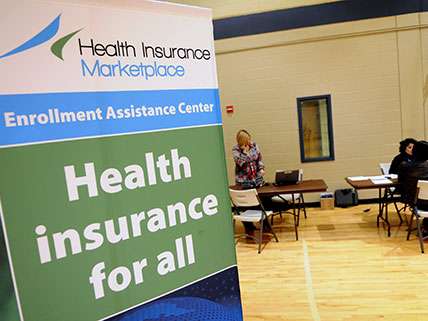The Promise of Obamacare vs. the Reality of Obamacare
The health law has always required difficult tradeoffs.

There's a strain of pro-Obamacare sentiment which acknowledges its flaws—or some of them, anyway—but argues that it's worth it because the law has helped so many people by expanding coverage. It's an argument that essentially ignores the people that Obamacare has made worse off.
Consider, just to take the most prominent recent example, the more than 9,000 residents of Pinal County, Arizona, who relied on the exchange set up by Obamacare for subsidized health coverage this last year. None of those people will be able to get subsidized coverage through the exchange next year, because no insurer will serve the county's exchanges; it is an illustration of what could happen inside Obamacare's insurance marketplaces should more insurers follow Aetna, UnitedHealth, and others in scaling back their exchange participation.
It is also a reminder of the ways in which the law has made life worse for some people. As the Cato Institute's Health Policy Director Michael Cannon notes in a piece for Time, the lack of any insurer serving Pinal County's exchange means is that "if you're a Pinal County resident who had a pre-Obamacare plan that covered your (now-preexisting) medical condition, Obamacare took away your coverage and the long-term protection it provided. It has left you either with far more expensive coverage, or no coverage at all."
Perhaps supporters of the law believe that this is just an acceptable tradeoff, a cost that is worth the law's other gains. After all, this affects less than 10,000 people. But Pinal County looks like it could be just the beginning: Next year, about a third of counties in the country will be served by just one insurer. At least one state health insurance regulator has reported allowing insurers to raise individual insurance premiums by significant margins out of fear that more carriers will drop out of the exchanges, leaving more counties like Pinal.
In any case, this is not how the law was sold to the public in 2009 and early 2010, when it was being debated. The promise of the law was that individuals could keep their health plans and their doctors, and that families would save money on health care in the process. The inevitable tradeoffs and ungainly realities of the law were ignored or downplayed or denied altogether—probably because if they had been acknowledged from the beginning, the law would not have passed.


Show Comments (134)